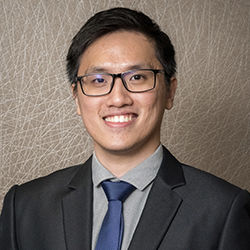
Master of Accounting (2015)
Willie is the Founder and Chief Executive Officer of Global Cerah, a Malaysian-based agri-tech start-up that turns waste into protein. By integrating waste management and the production of alternative protein sources into a sustainable solution, Global Cerah promotes circular economy excellence. Willie has won numerous awards commending his involvement in developing green and sustainable solutions for future landscapes.
Prior to launching Global Cerah, Willie worked in accounting and consulting roles with KPMG, PwC and other multi-national companies. He completed a Master of Accounting at The Australian National University (ANU) in 2015. During his time at ANU, Willie was a Student Ambassador for Google and a Global Campus Ambassador for Bloomberg, and was selected for the prestigious ANU Vice Chancellor’s Student Leadership Program. You can read more about Willie’s story here.
28 March 2022
What skills are highly appreciated by employers in Malaysia?
The focus is mostly on soft skills: critical thinking and analysis, leadership and team management, reasoning, problem solving and ideation, emotional intelligence, analytical thinking and innovation.
When you returned to Malaysia after graduation, what was the number one challenge you encountered in terms of entering the job market and how did you resolve it?
Malaysian employers do not see the difference between a Master or Bachelor degree. They prefer experience and soft skills to determine your capabilities to adopt important roles. I researched the job market and employers' backgrounds before my interviews. During interviews, I highlighted my experience and personal brand, and skills developed through my Masters, to illustrate how I could contribute to the company.
I have found that Malaysian employers will care more about your soft skills, attitude and technical knowledge – rather than academic qualifications. That’s why personal branding is crucial. Developing a good resume and LinkedIn profile can give recruiters and HR a better understanding of who you are.
What are your top three lessons from entering recent international award competitions?
- Effective communication.
Never expect your target audience to have the same background knowledge as you. Simplify your pitch and get straight to the point so they can understand how your solution will resolve their problem. Storytelling with nice, simple slides is an effective way to communicate your vision.
- International exposure.
Participating in international awards, competitions and programs allows me to network with peers, mentors and potential investors – stakeholders who can share resources and knowledge to contribute to my initial business solution. This also allows me to self-reflect and continuously improve on my solutions going forward.
- Commercialisation of sustainable business.
Demand for sustainability has been rising over the past five years, especially in corporate and government sectors and government-linked companies. More resources are being invested into finding environmental, social and governance solutions to problems in the long-term. However, the business failure rate is still high on average, due to poor business management and slow commercialisation progress, which limits the growth of sustainable solutions in the market. This means innovative solutions need to have practical management and the right commercialisation planning to create a positive impact in the future.
